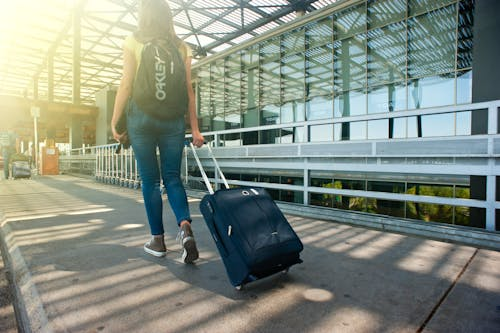Seasoned travelers develop savvy strategies for handling luggage on long journeys. One common tip is to pack a spare set of clothes in your carry-on. Travel writers note that this can greatly ease the stress if checked baggage is delayed or lost (trafalgar.com). Likewise, using a brightly colored tag or ribbon on your suitcase makes it easy to spot in crowded carousels (trafalgar.com). “It can often take a few days for the airline to locate missing baggage,” one frequent traveler advises, so these tricks help reduce the panic if bags go astray (trafalgar.com). Other veterans recommend packing cubes or compression bags to stay organized. As a U.S. flight attendant observes: “It’s important to be organized so you don’t lose your items or panic if you think you’ve lost them” (refinery29.com). By compartmentalizing clothing and gear, packing cubes also let you fit more into limited space, a boon for repeat flyers (refinery29.com).
Tales from Around the World
Baggage stories span the globe. In Japan, travelers benefit from Kansai International Airport’s impeccable record: it has never lost a checked bag since opening in 1994 (npr.org). By contrast, in the U.S. about 3 million pieces of passenger luggage go missing each year (npr.org), illustrating that experiences vary widely by region. In one anecdote, a British passenger was stranded in London while her suitcase flew on to South Africa – an error that highlights the chaos that can ensue with international flights (independent.co.uk). That passenger had “the baggage but not the passenger,” forcing her to navigate new laws to retrieve her belongings (independent.co.uk). Such stories teach hard lessons: double-check flight connections and ensure your bag is properly tagged.
In less-developed airports, staff shortages and outdated equipment can make delays and mishandling more common. Some travelers report extra caution in parts of Africa or Latin America, where baggage theft or mishandling has led many to use cable locks or even ship valuables separately. For example, missionaries traveling on Latam Airlines once found their tags mixed up and bags mishandled (misionerosdearequipachipman.com). (Local news and social media often contain such anecdotal accounts.) The takeaway for frequent flyers is universal: know your airline’s policies, carry valuables on board when possible, and consider travel insurance. As one experienced flier put it, “Once your bags are checked, they can be on a different journey than you – so plan accordingly.”
Advice for the Jet-Setter
Drawing on these experiences, frequent flyers share practical tips:
- Check weight and size limits in advance. Airlines worldwide vary wildly. For instance, U.S. carriers often include one free checked bag on domestic flights, whereas many European low-cost airlines (Ryanair, Wizz Air) charge per bag. In Asia and Africa, some carriers still include two free checked bags on international tickets. Always verify on the carrier’s website or a booking platform.
- Use quality locks or zip-ties. Security rules allow TSA-approved locks; a sturdy lock deters casual tampering. In regions with theft risk, travelers even use tamper-evident cable ties to see if bags have been opened.
- Label everything inside and out. Put your contact info inside pockets in case the luggage tag gets torn off, and attach an external tag on top and side. A multilayered approach increases the chance your bag can be identified if separated from you.
- Take photos of packed bags. Before checking in, snap a photo of each suitcase with its contents (especially valuables). If damage or loss occurs, these images can help substantiate claims.
- Be patient and polite at counters. When bags are delayed, agents process claims more smoothly if passengers remain cooperative. Maintain polite firmness: document everything with reference numbers and claim tags given at the desk.
These practices, born of hard-learned lessons, help frequent travelers worldwide manage the inevitable baggage hassles. And despite horror stories, most trips go smoothly: airlines succeed with the millions of bags checked daily. By following veteran flyers’ advice, travelers maximize the odds their luggage keeps up with their itinerary (trafalgar.com)(refinery29.com).


